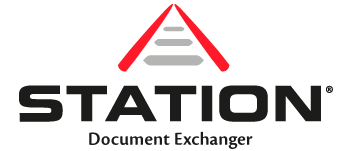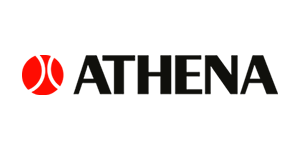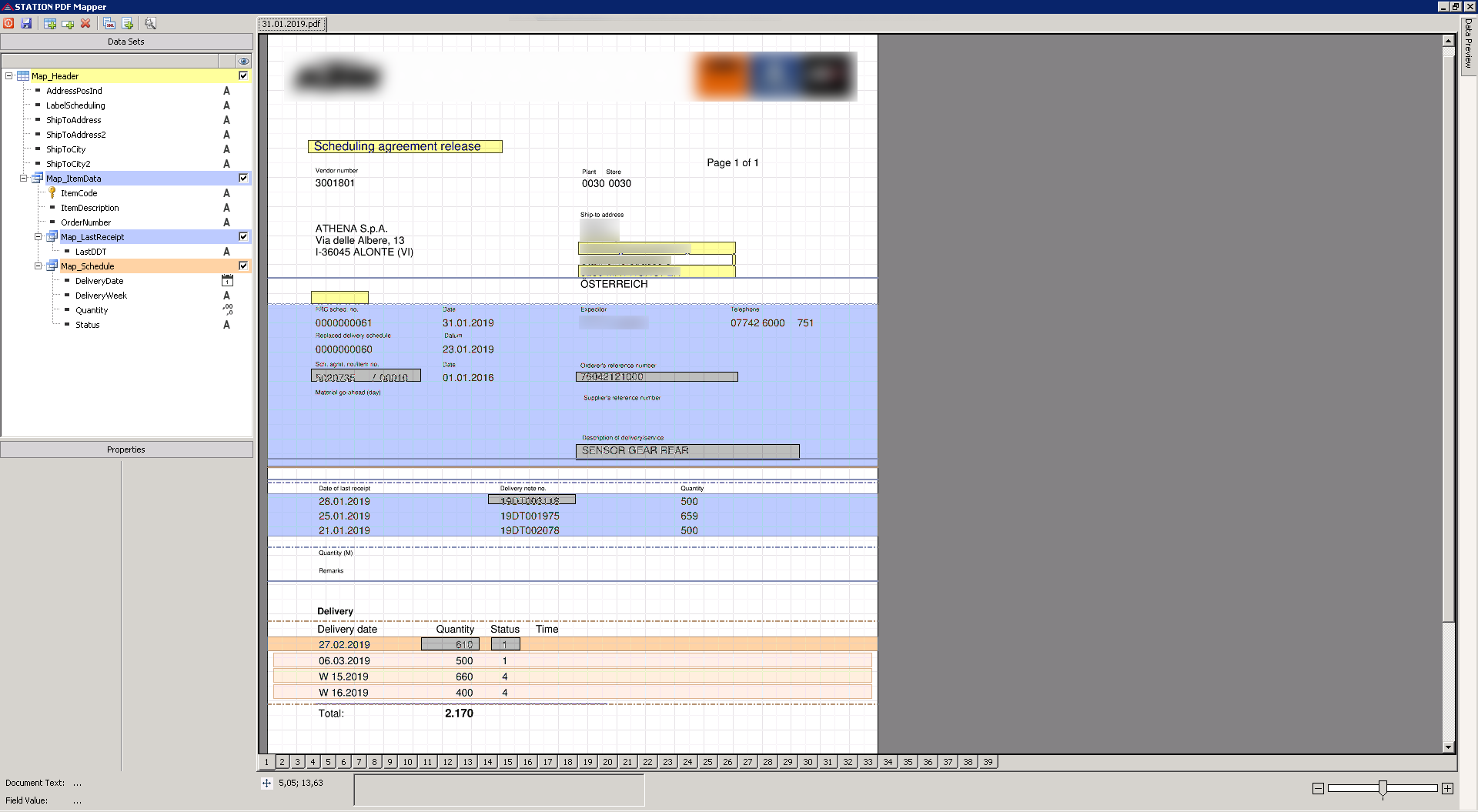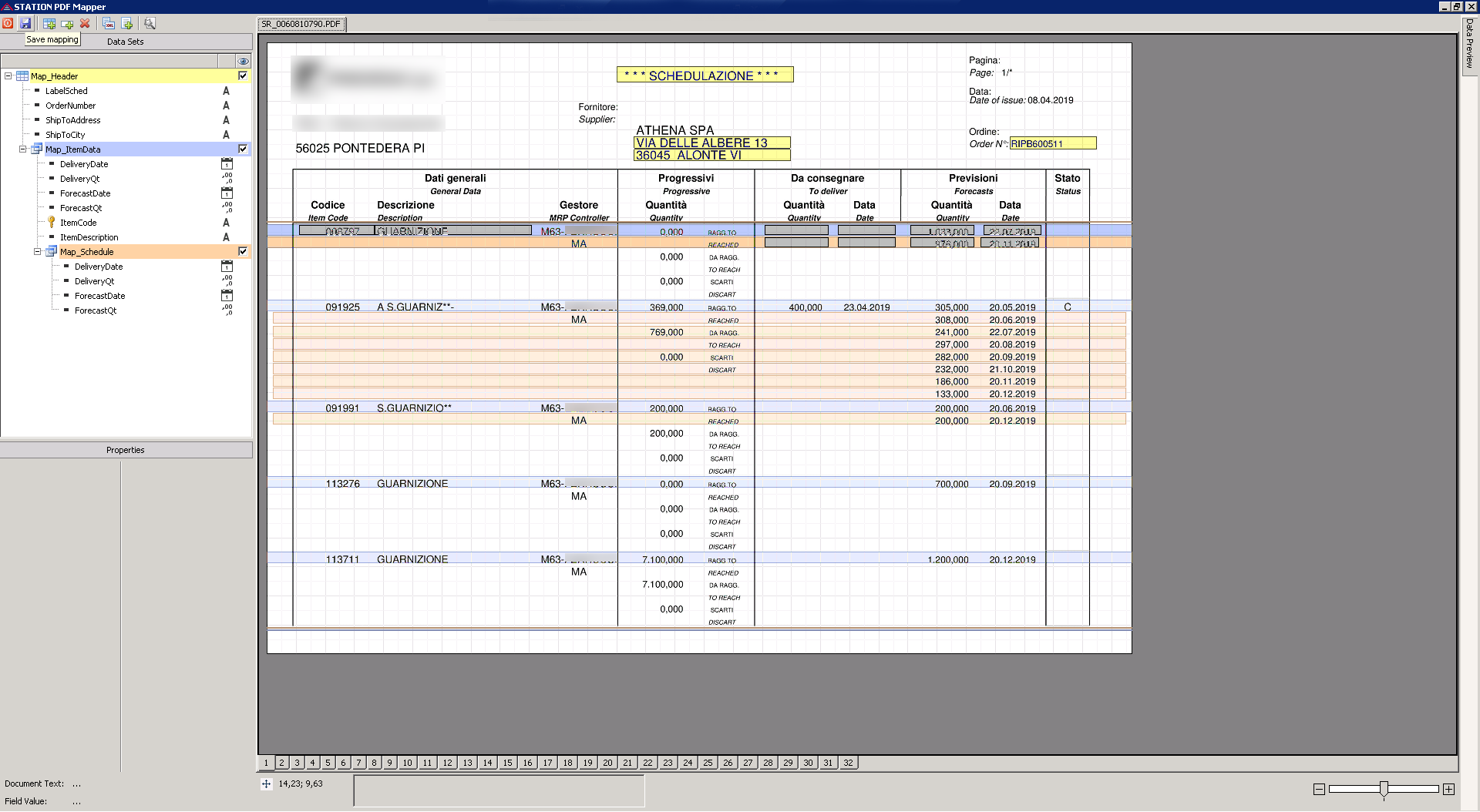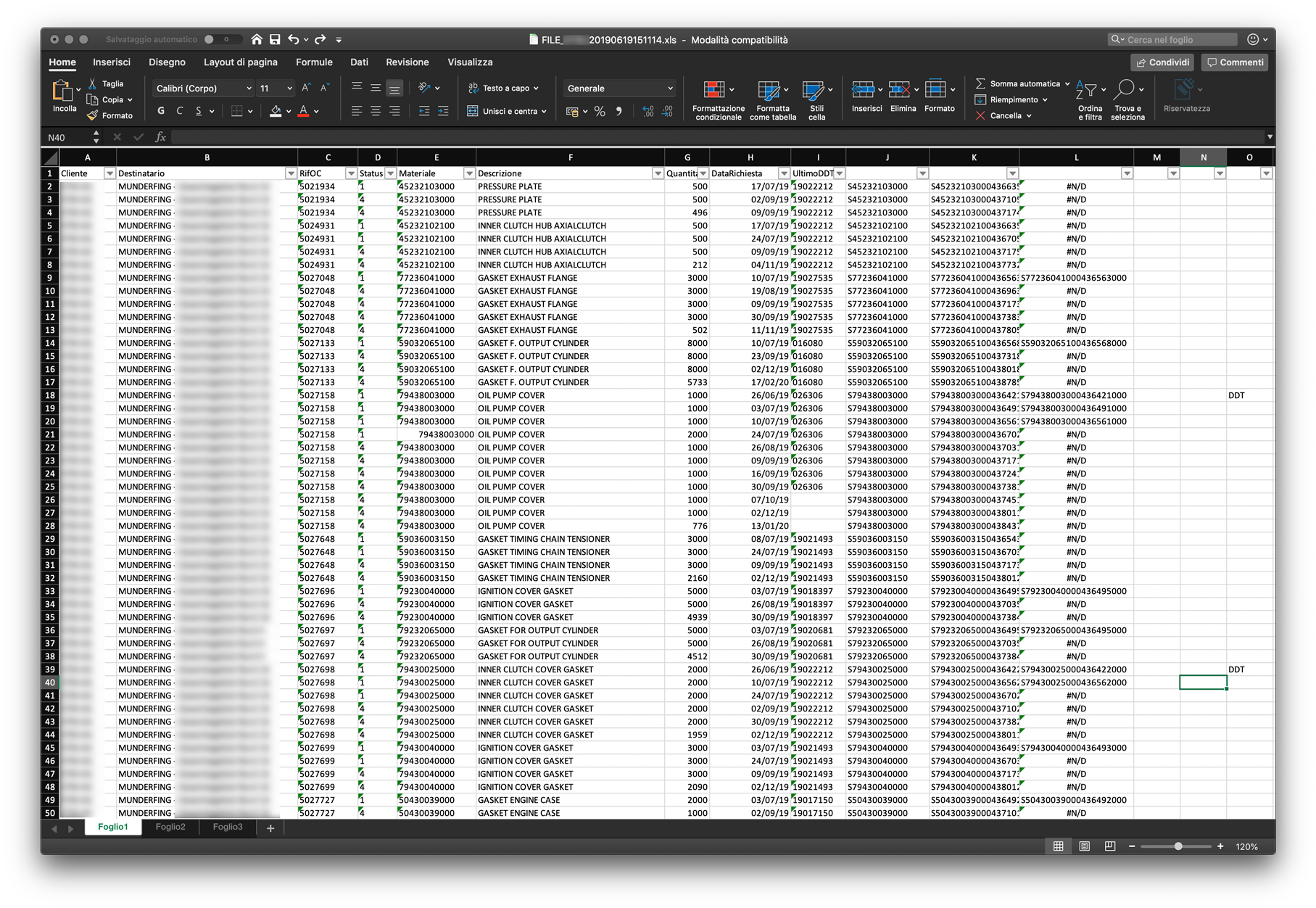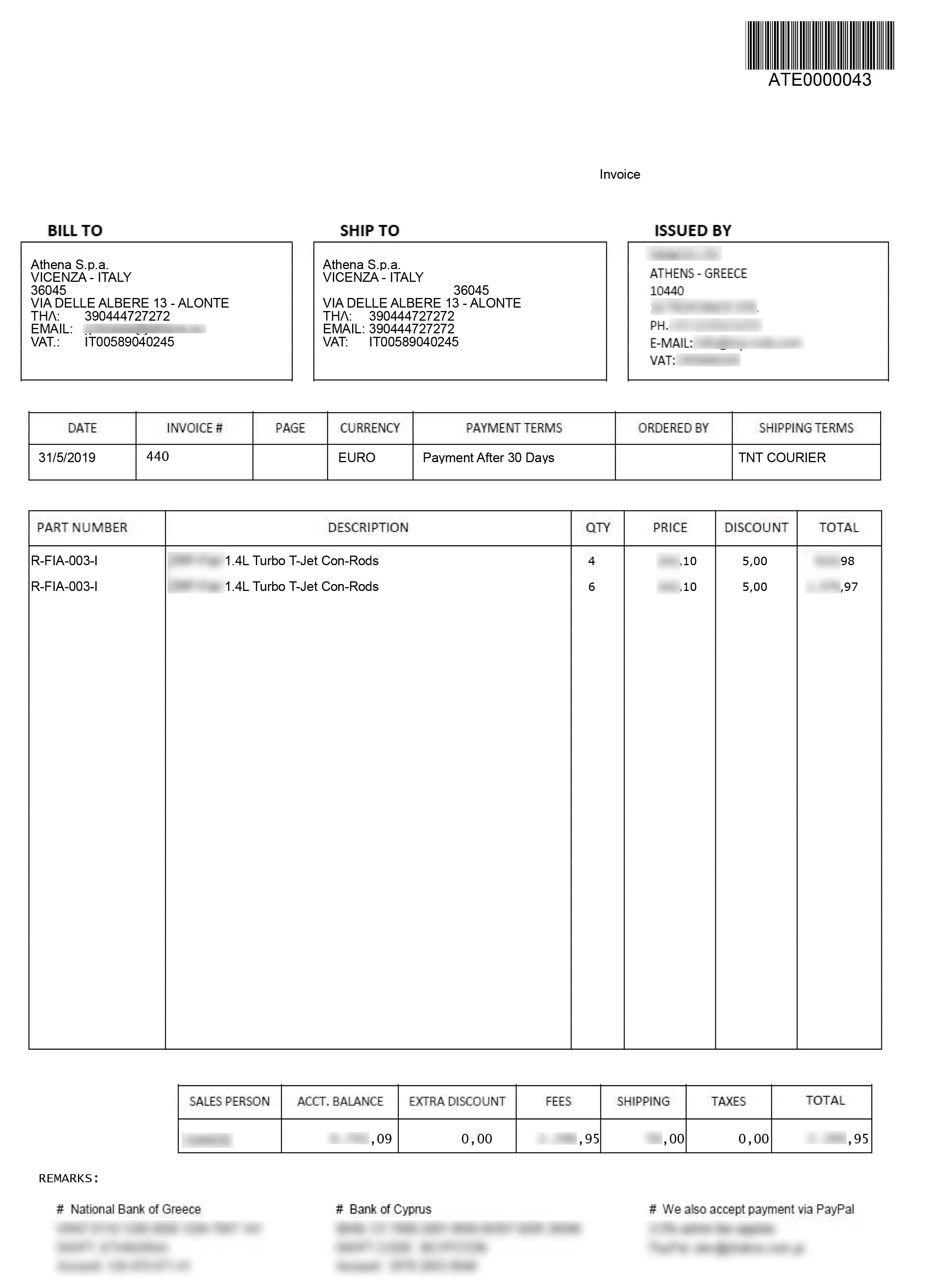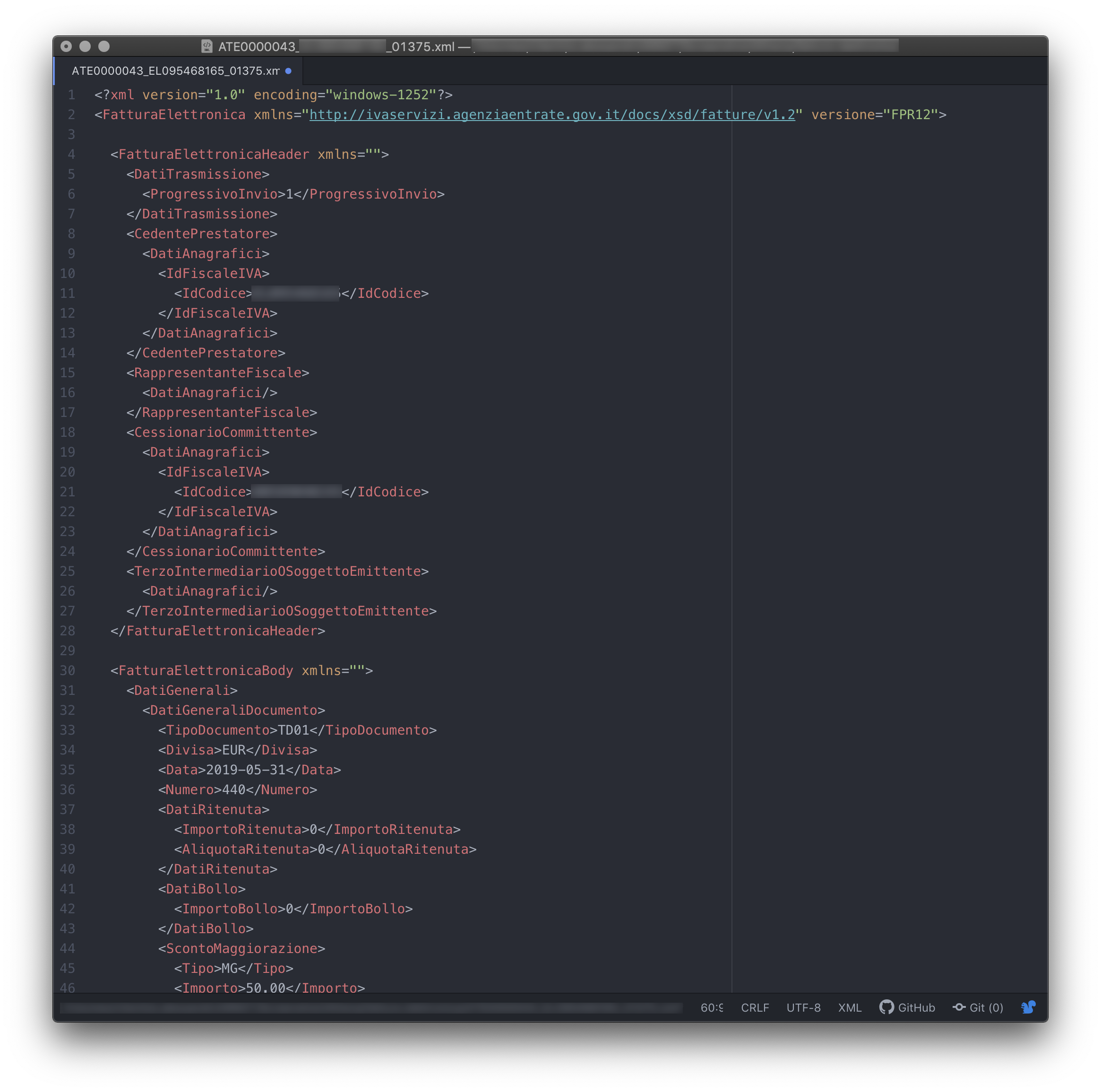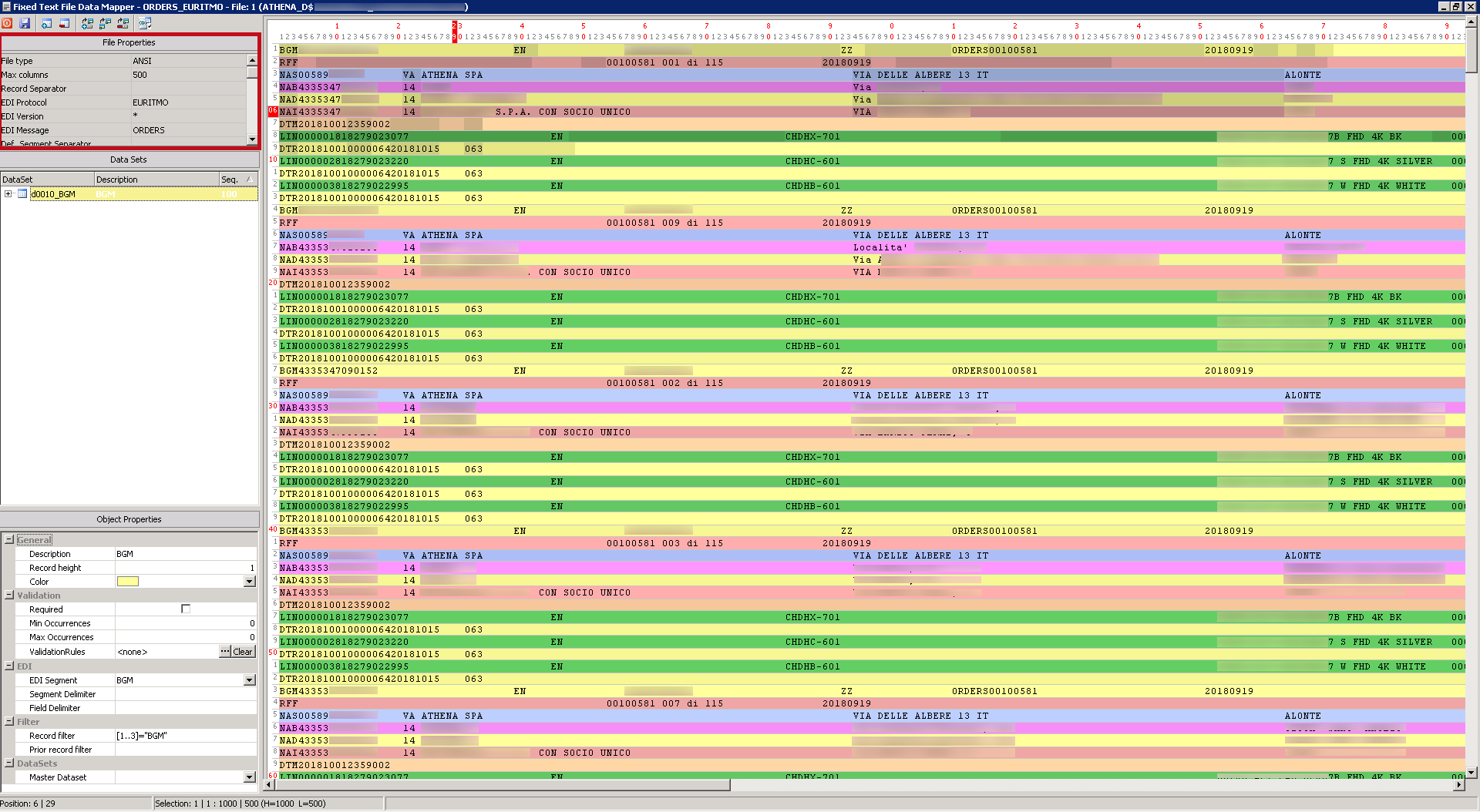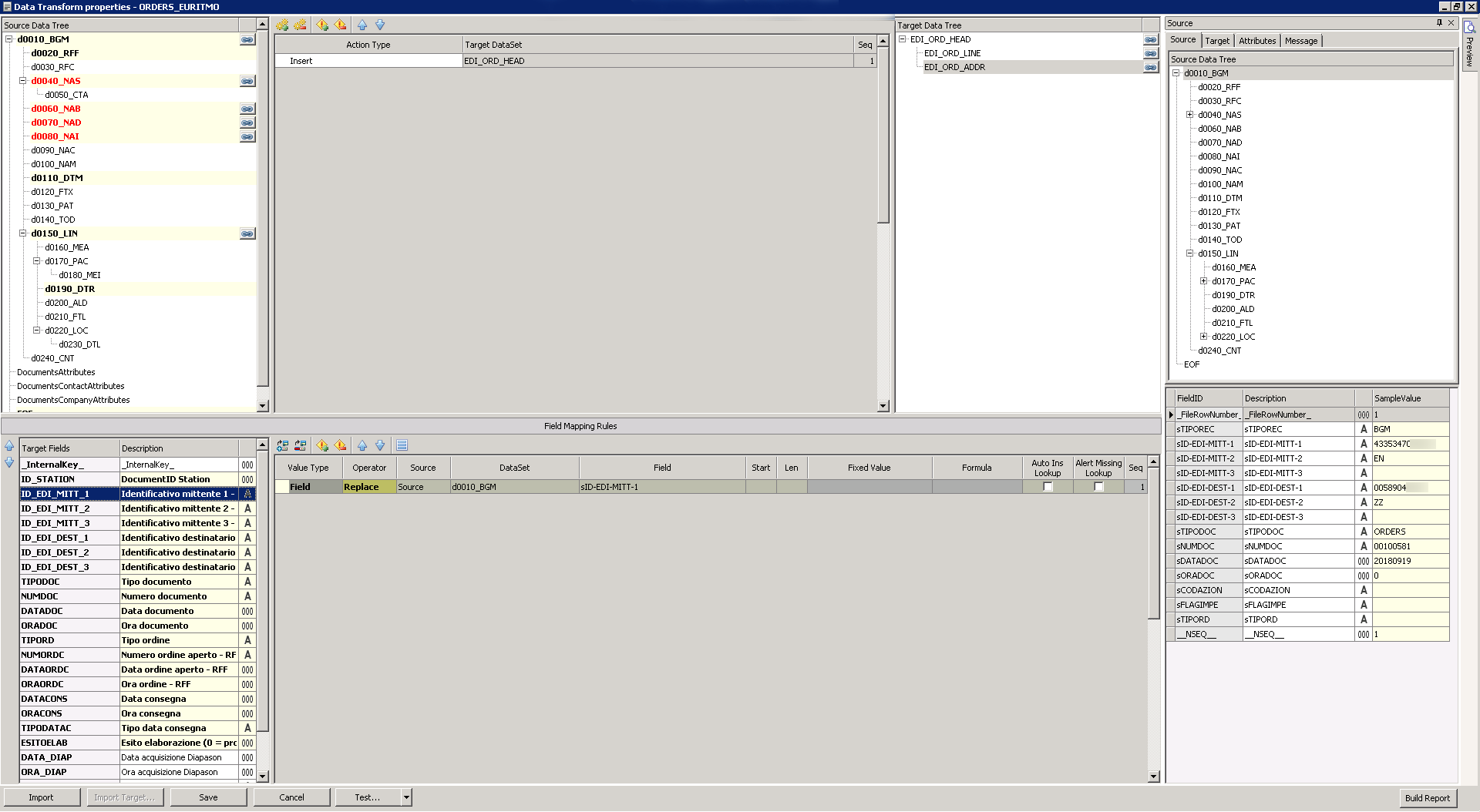Industry: Production of spare parts for motorcycles, cars, nautical and industrial transport, production of sealing systems for industry, distribution of technological brands related to the world of sport and leisure.
Number of employees: 744
Revenue: 120.500.000 €
THE COMPANY'S NEED
Athena Spa is an international group that includes three divisions:
- Parts&Electronics: produces and distributes technical spare parts for the motorcycle, car, marine and industrial transport sectors
- Industries: designs and implements One-to-One technical solutions for products and industrial processes in the field of blanked products and innovative sealing systems.
- Sportech&Lifestyle: distributes brands with a high technological content, linked to the world of sport and leisure
The company handles large volumes of documents of different types every day (eg delivery plans, orders, purchase invoices), coming from different customers and suppliers, with heterogeneous templates and formats (eg PDF, EDI, XML).
The management of these documents requires numerous manual procedures, some of which are at high risk of error. Hence the desire of Athena Spa to streamline these processes, automating them.
The solution proposed by Arket: Station
To optimize document management, Athena Spa has chosen the Station software, automating a series of operations and flows that are particularly expensive in terms of time and resources and with a high risk of error.
IIn particular, three different projects have been implemented with the Station software:
- Conversion to Excel of the delivery schedule received from customers
- Conversion of foreign invoices for automatic import into the erp
- Automatic uploading of EDI orders into the ERP
1. CREATION OF EXCEL WITH SCHEDULING OF DELIVERIES TO CUSTOMERS
Athena Spa regularly receives from its customers deliveriy schedules in PDF format, containing the code of the items they must receive, and for each one the quantity and the expected delivery date.
Each customer has its own template for this type of document: the need, satisfied with the Station software, was to normalize the delivery plan of each customer in a standard format chosen by Athena Spa, making it much easier for the staff to consult and import into the company information system.
When the user receives a delivery plan he saves it in a specific folder on FileSystem. Station constantly monitors this folder and imports the new documents: based on the references in the document header, Station recognizes the customer and applies the correct mapping for data extraction.
After extracting the data, Station compiles an Excel spreadsheet with a standard structure for all customers, which can be consulted by users and imported into the ERP, since the structure is normalized.
2. CONVERSION OF FOREIGN INVOICES FOR AUTOMATIC IMPORT
Athena Spa receives invoices from its suppliers in two different formats:
- Italian suppliers, from the coming into force of the electronic invoicing obligation, send invoices with specific XML format for Italian electronic invoicing
- Foreign suppliers continue to send invoices in PDF format
The company must therefore manage different formats for purchase invoices, one that can be processed directly from the erp (XML) and one not (PDF).
Hence the choice of Athena Spa to use Station to convert foreign invoices in the same format as Italian electronic invoices.
Foreign suppliers send purchase invoices to a dedicated e-mail box, kept under control by Station: the software acquires the PDF invoices contained in the e-mails and, automatically applying the correct mapping for the customer, extracts the data.
At this point, Station recomposes the extracted data into an XML file, building it following the standard of Italian electronic invoicing.
The XML generated in this way is then made available to the ERP Diapason in a special folder, which takes the file and imports it: in this way, therefore, the file can be processed by the ERP like the Italian purchase invoices.
3. AUTOMATIC EDI ORDER IMPORT
Some Athena Spa customers have chosen to use EDI (Electronic Data Interchange) and in particular the EURITMO standard (Italian EDI standard), to send their orders.
Exchanging messages via EDI brings great advantages, linked to the fact that the file is structured and therefore easily processed by the information system: hence the choice of Athena Spa to automate the process of entering EDI orders into the ERP.
The Station software is able to process EDI messages and perform automatic mapping for data extraction, using pre-loaded internal dictionaries, containing the definitions of the main messages in the various EDI standards.
After defining in the configuration phase that the standard to be used is EURITMO, Station proceeds to the recognition of the various information contained in the lines and automatically extracts the data.
Still in the configuration phase, using the Station DataTransform tool, it is possible to view the extracted information and define in which field of the destination table each field extracted from the EDI message must be saved.
In this way it is possible to load the data extracted in the ERP tables, thus allowing the automatic importation of the order into the ERP.
The advantages of the solution
The decision to automate the processes associated with certain types of documents (delivery scheduling, foreign invoices, EDI orders) has allowed Athena Spa to streamline the operational flows of the purchasing and accounting department.
In particular, transforming manual data entry operations into a flow of automatic uploading of orders / invoices / scheduling into the erp, has made it possible to eliminate the errors often linked to this type of operations and to reduce the management times.
Furthermore, the staff who previously had to spend much of their time on repetitive operations with little added value (such as manually entering data in the ERP), can now devote more attention to more strategic activities for the company.
